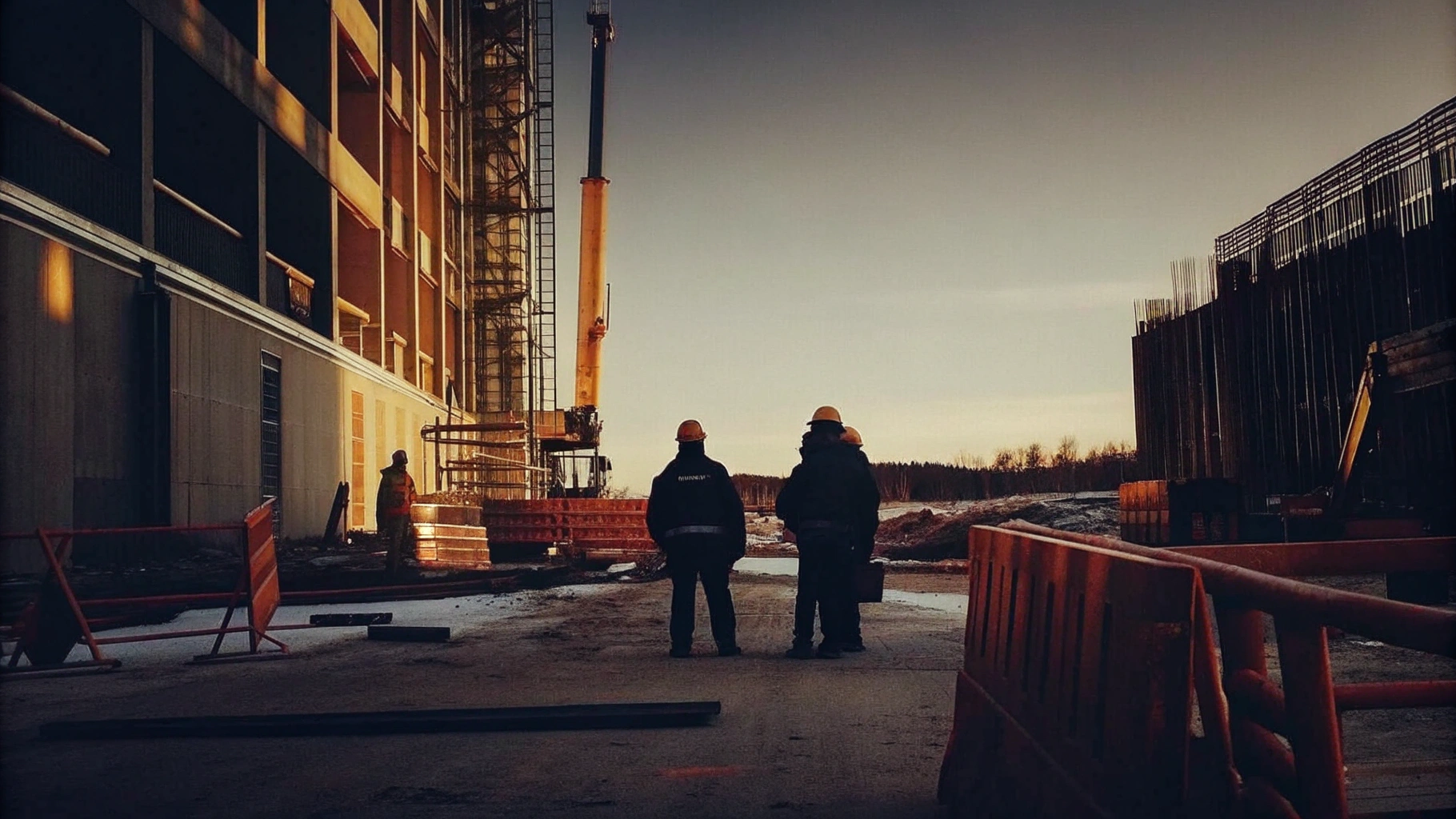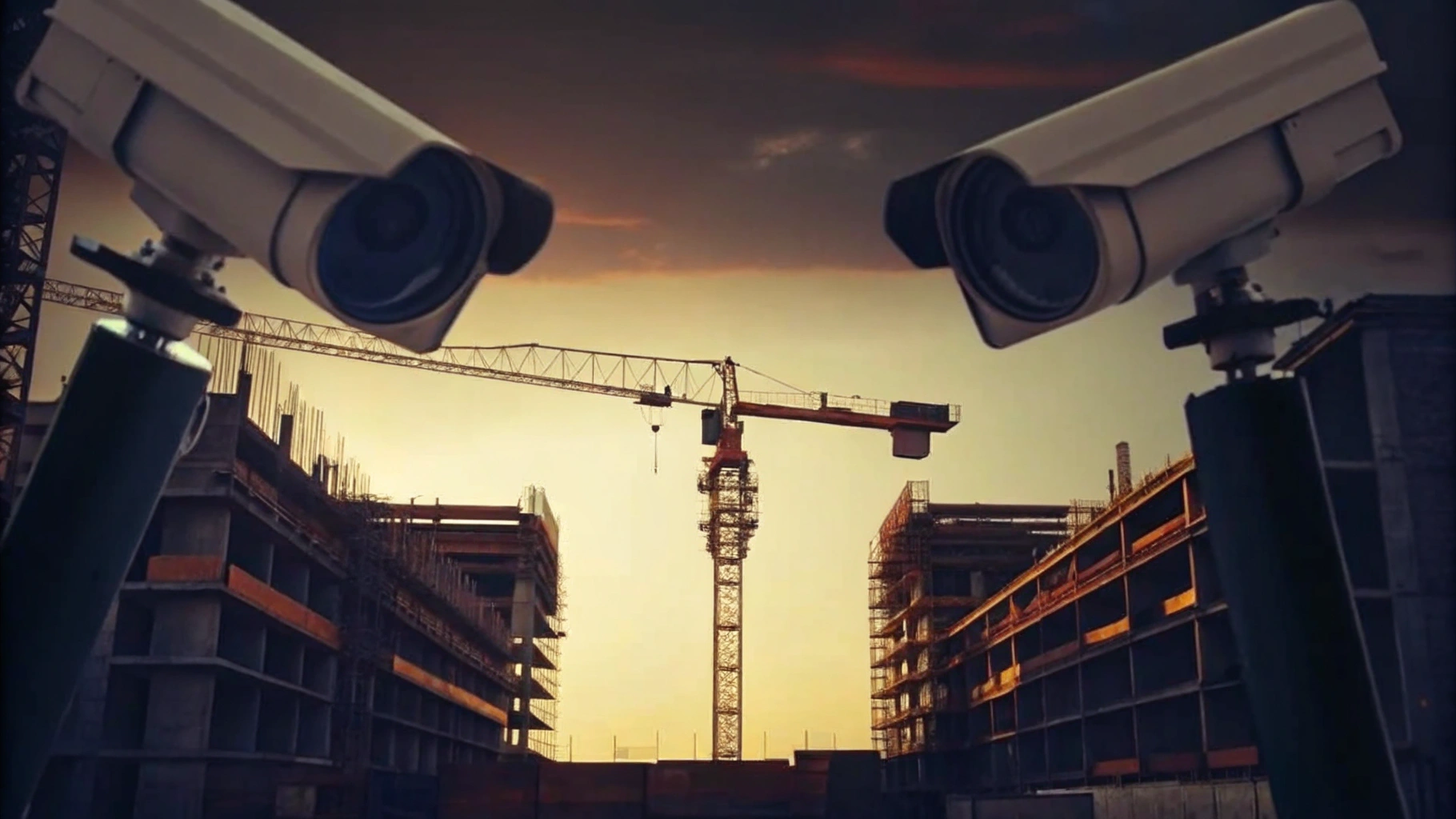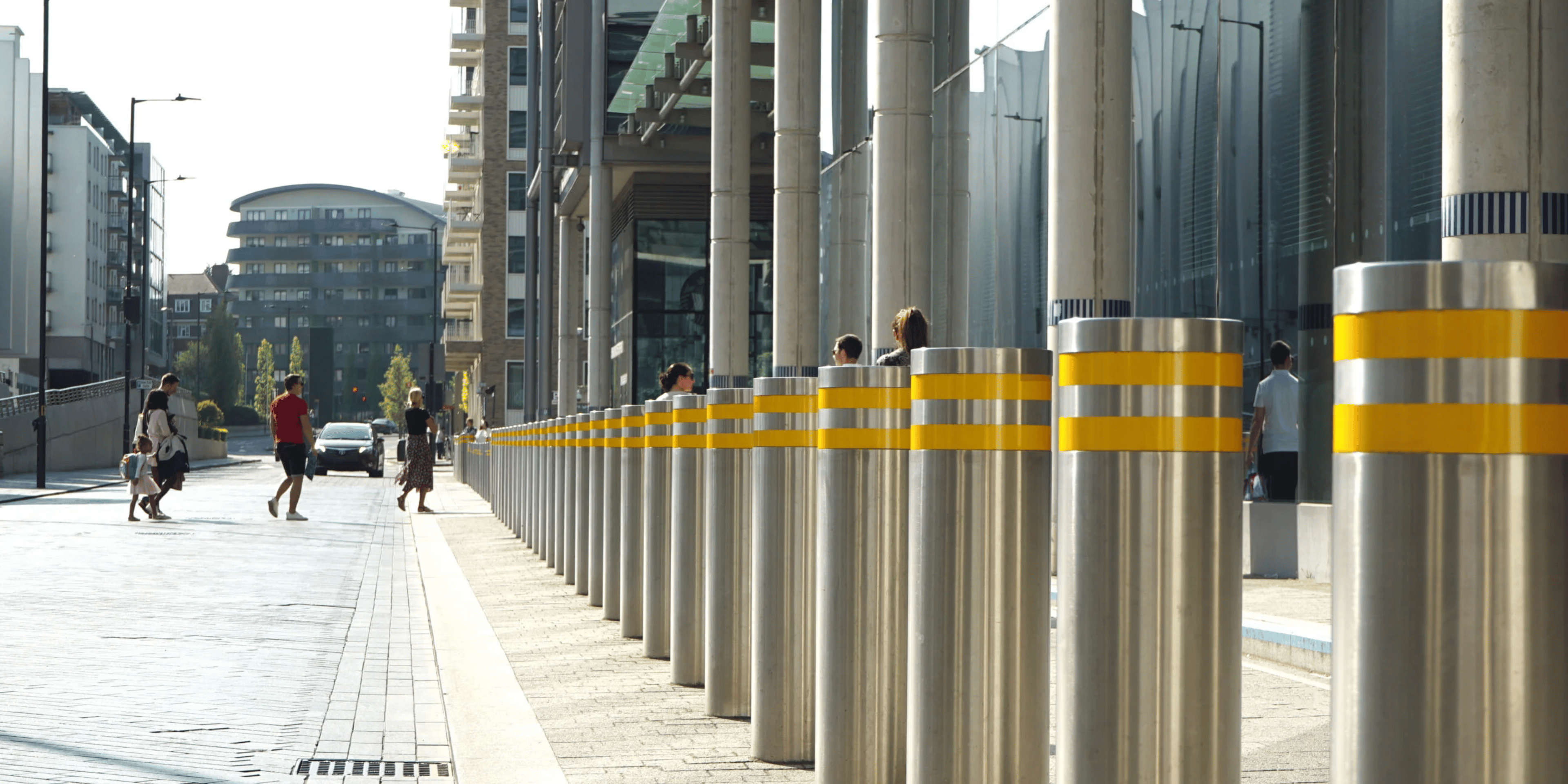
Understanding Corporate Security: Importance for Construction Managers

Overview
Corporate security is essential for construction managers, as it safeguards valuable assets, ensures compliance with safety regulations, and cultivates a secure working environment, ultimately enhancing operational efficiency. The reality is that robust security strategies, including risk assessments and advanced monitoring systems, significantly mitigate theft and vandalism. This not only protects project integrity but also fosters trust among stakeholders. Ignoring these risks can lead to substantial financial losses, operational disruptions, and reputational damage.
In practise, Priority First offers a pragmatic solution, focusing on measured reasoning rather than hype, to secure assets effectively and ensure business resilience.
Introduction
Corporate security is a foundational element that can make or break a construction project. The reality is that the construction industry faces an alarming rate of theft and cyber threats, with losses exceeding £1 million a week. This statistic underscores the critical importance of robust security measures for construction managers. Ignoring these risks can lead to severe financial, operational, and reputational consequences.
In practise, effective security strategies are essential not only to safeguard assets but also to ensure compliance and foster a safe working environment. As the landscape of risks evolves, construction managers must adapt their security practises to protect their projects while enhancing operational efficiency and stakeholder trust.
The lesson is clear: early investment in security is not merely an expense; it is a vital component of business continuity.
Defining Corporate Security: Scope and Significance
Corporate security encompasses the strategies and actions organisations employ to protect their physical and digital assets, staff, and reputation from various threats. In project management, the significance of business protection is underscored by the substantial value of materials and equipment, along with the inherent dangers associated with building sites. Statistics reveal that 50% of companies reported experiencing some form of cyber threat or attack in the past year, underscoring the necessity for robust corporate security strategies.
Effective corporate security not only protects organisational assets but also ensures compliance with safety regulations, which is crucial in the construction sector where adherence to health and safety standards is paramount. A secure working environment enhances productivity and mitigates risks, allowing personnel to concentrate on their tasks without the distraction of potential threats.
Approaches to corporate security on construction sites involve the implementation of advanced monitoring systems, access control protocols, and regular risk assessments. These strategies are essential for identifying vulnerabilities and establishing protocols to address them proactively. Experts assert that a comprehensive safety strategy can significantly reduce incidents of theft and vandalism, which are prevalent on construction sites.
Moreover, effective strategies for corporate security include training staff on safety protocols and the importance of vigilance. By cultivating a culture of safety awareness, project managers empower their teams to recognise and report suspicious activities, thereby enhancing site safety. Ultimately, extends beyond mere asset safeguarding; it is vital for maintaining operational integrity and ensuring the successful execution of projects.

The Evolution of Corporate Security: Historical Context and Development
The evolution of corporate security has undergone a significant transformation, shifting from basic defensive measures to sophisticated, multi-faceted strategies. Initially, the focus was predominantly on physical protection, addressing issues such as theft and vandalism. The reality is that as the landscape of risks has expanded—particularly with the rise of cyber threats—corporate security has increasingly integrated cybersecurity and risk management into its framework. This transition is particularly evident in the construction industry, where managers face a complex array of risks associated with both physical and digital assets.
In practise, the adoption of advanced technologies has revolutionised corporate security practises. Innovations such as AI-driven surveillance systems and predictive analytics have become essential to contemporary protective measures, enabling organisations to proactively identify and address potential threats. For instance, the implementation of [intelligent CCTV monitoring with automated threat detection](https://priorityfirst.co.uk/insights/10-ways-ai-cctv-enhances-security-for-construction-sites) has significantly enhanced the ability to respond to incidents in real-time.
Case studies effectively illustrate this transition. The sharp increase in ransomware attacks—up by 82% annually—highlights the need for construction companies to implement comprehensive corporate security strategies alongside traditional physical protection protocols. As organisations increasingly rely on digital tools and cloud-based solutions, the necessity for robust corporate security frameworks is more critical than ever.
Furthermore, the advancement of business protection strategies has evolved over time, reflecting the changing nature of threats. As Neil Weller, Group CISO, notes, 'The complexity of these attacks indicates conventional protective strategies may not suffice.' This underscores the importance of integrating human judgement with technological solutions to effectively combat .
Overall, the development of corporate security within the building industry exemplifies a broader trend towards a unified approach that includes both physical and digital defence measures. As project managers navigate this complex landscape, understanding these developments is crucial for safeguarding their initiatives and assets.
Core Functions of Corporate Security: Roles and Responsibilities
Corporate protection encompasses vital functions such as risk assessment, access control, surveillance, incident response, and compliance monitoring. Security personnel are crucial in identifying vulnerabilities and implementing protective measures to secure construction sites. This involves:
- Monitoring access points to thwart unauthorized entry
- Conducting regular patrols to deter theft and vandalism
- Ensuring a swift response to incidents
Effective surveillance systems, including advanced CCTV monitoring, facilitate real-time threat detection and behavioral analysis, thereby enhancing overall site protection.
Moreover, corporate protection is essential for ensuring compliance with health and safety regulations, which is critical for maintaining a safe working environment and avoiding costly project delays. Safety teams are tasked with:
- Enforcing safety protocols
- Performing regular inspections
- Providing training to site personnel on best practices
By fostering a culture of safety and vigilance, these teams not only protect physical assets but also improve the operational efficiency of construction projects.
The reality is that security is often viewed as an ancillary function, yet it is integral to business resilience. Ignoring security risks can lead to significant financial losses, operational disruptions, and reputational damage. For instance, construction theft costs UK businesses over £1m a week, underscoring the necessity of robust protective measures.
In practice, Priority First offers a comprehensive approach to corporate security, ensuring that businesses can operate without the looming threat of security breaches. With a track record of securing over £1.6bn in assets and demonstrating rapid response times, Priority First positions itself as a trusted advisor and partner. The lesson is clear: early not only safeguards assets but also prevents greater losses in the long run.

The Importance of Corporate Security: Protecting Assets and Ensuring Continuity
Corporate security is essential in the construction sector, where projects often involve substantial financial investments and intricate logistics. The reality is that , highlighting the urgent need for robust corporate security measures to safeguard valuable assets and uphold the financial interests of contractors and developers.
Ignoring these risks can lead to severe financial, operational, and reputational consequences. A strong corporate security presence not only protects assets but also enhances operational continuity by minimising disruptions caused by theft or vandalism. In practise, sites equipped with comprehensive corporate security protocols are significantly less likely to face setbacks, resulting in more efficient project timelines and increased profitability. For instance, mobile surveillance cameras have proven effective in deterring theft and bolstering monitoring capabilities, allowing site managers to maintain oversight of their areas.
Moreover, corporate security plays a crucial role in fostering a secure environment that builds trust among stakeholders, including clients, employees, and regulatory bodies. Expert opinions indicate that prioritising corporate security transcends mere protection; it represents a strategic investment in operational efficiency. By integrating advanced security technologies and protocols, construction managers can improve corporate security, ensuring their projects remain on track and ultimately contributing to a more reliable and profitable construction process. The lesson is clear: early investment in security measures can prevent far greater losses down the line.

Conclusion
Corporate security is a fundamental pillar in the construction industry, safeguarding physical assets while ensuring the operational integrity of projects. The necessity of implementing robust security measures is paramount, particularly in a sector where threats—both physical and cyber—are continually evolving. By prioritising corporate security, construction managers can foster a safer working environment that promotes productivity and compliance with safety regulations.
The reality is that corporate security is multifaceted, encompassing advanced monitoring systems, access control protocols, and the vital role of staff training in enhancing safety awareness. The evolution of security practises, especially with technological integration, highlights the need for construction managers to adapt to emerging threats. Staggering statistics regarding theft and cyber threats further illustrate the pressing requirement for comprehensive security strategies that protect assets and enhance operational continuity.
The lesson is clear: investing in corporate security is not merely a defensive measure; it is a strategic imperative that leads to enhanced efficiency, reduced risks, and greater trust among stakeholders. As the construction landscape evolves, embracing innovative security solutions is crucial for ensuring project success and safeguarding valuable assets. The call to action is evident: construction managers must take proactive steps to fortify their security measures, securing not just their projects but also the future of their organisations.
Frequently Asked Questions
What does corporate security encompass?
Corporate security encompasses the strategies and actions organisations employ to protect their physical and digital assets, staff, and reputation from various threats.
Why is corporate security significant in project management?
Corporate security is significant in project management due to the substantial value of materials and equipment, as well as the inherent dangers associated with building sites.
What statistics highlight the importance of corporate security?
Statistics reveal that 50% of companies reported experiencing some form of cyber threat or attack in the past year, underscoring the necessity for robust corporate security strategies.
How does effective corporate security benefit organisations?
Effective corporate security protects organisational assets, ensures compliance with safety regulations, enhances productivity, and mitigates risks, allowing personnel to focus on their tasks without distractions from potential threats.
What approaches are used for corporate security on construction sites?
Approaches include the implementation of advanced monitoring systems, access control protocols, and regular risk assessments to identify vulnerabilities and establish proactive protocols.
How can a comprehensive safety strategy impact construction sites?
A comprehensive safety strategy can significantly reduce incidents of theft and vandalism, which are prevalent on construction sites.
What role does staff training play in corporate security?
Training staff on safety protocols and the importance of vigilance helps cultivate a culture of safety awareness, empowering teams to recognise and report suspicious activities, thereby enhancing site safety.
What is the broader purpose of corporate security in construction?
Corporate security in construction extends beyond asset safeguarding; it is vital for maintaining operational integrity and ensuring the successful execution of projects.




